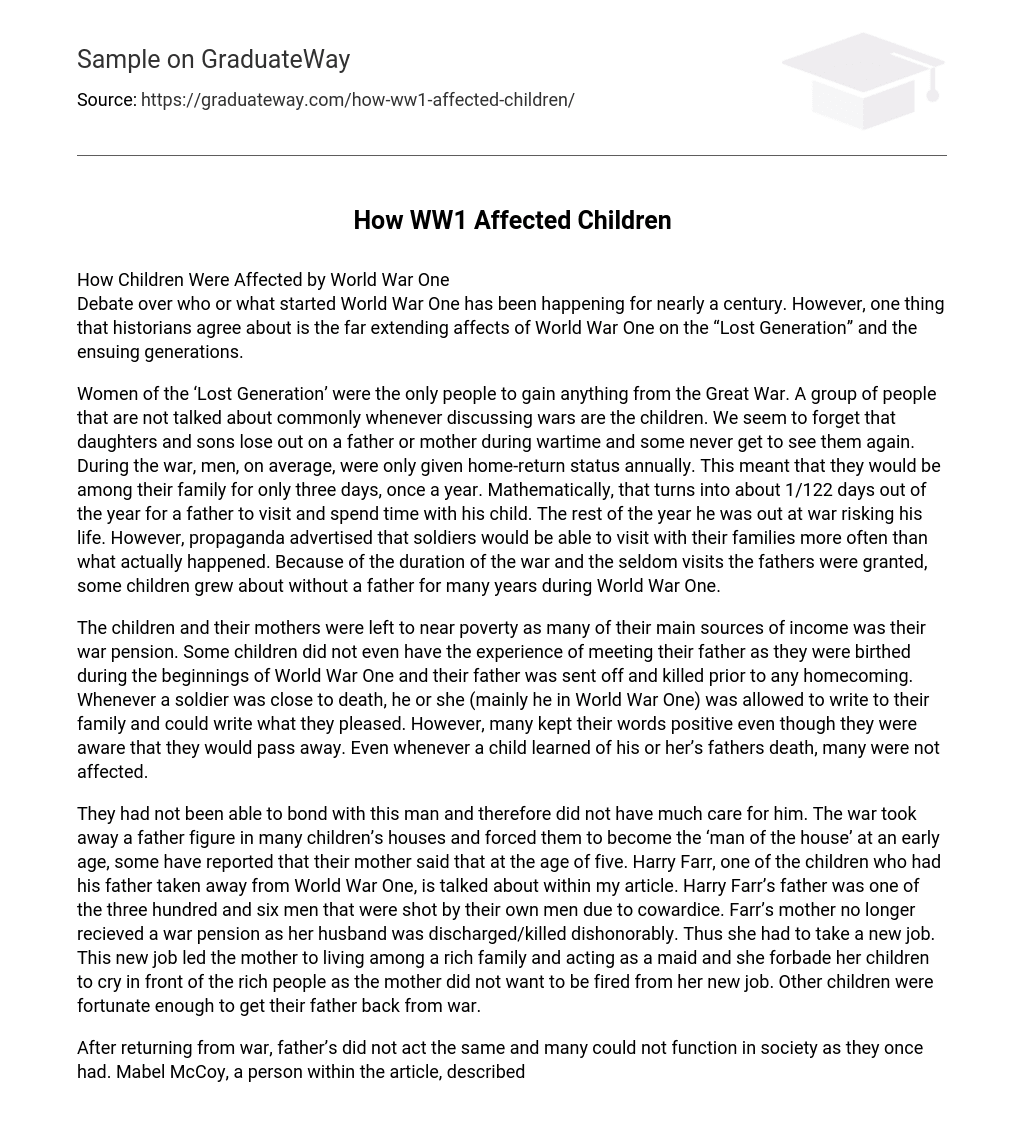How Children Were Affected by World War One
Debate over who or what started World War One has been happening for nearly a century. However, one thing that historians agree about is the far extending affects of World War One on the “Lost Generation” and the ensuing generations.
Women of the ‘Lost Generation’ were the only people to gain anything from the Great War. A group of people that are not talked about commonly whenever discussing wars are the children. We seem to forget that daughters and sons lose out on a father or mother during wartime and some never get to see them again. During the war, men, on average, were only given home-return status annually. This meant that they would be among their family for only three days, once a year. Mathematically, that turns into about 1/122 days out of the year for a father to visit and spend time with his child. The rest of the year he was out at war risking his life. However, propaganda advertised that soldiers would be able to visit with their families more often than what actually happened. Because of the duration of the war and the seldom visits the fathers were granted, some children grew about without a father for many years during World War One.
The children and their mothers were left to near poverty as many of their main sources of income was their war pension. Some children did not even have the experience of meeting their father as they were birthed during the beginnings of World War One and their father was sent off and killed prior to any homecoming. Whenever a soldier was close to death, he or she (mainly he in World War One) was allowed to write to their family and could write what they pleased. However, many kept their words positive even though they were aware that they would pass away. Even whenever a child learned of his or her’s fathers death, many were not affected.
They had not been able to bond with this man and therefore did not have much care for him. The war took away a father figure in many children’s houses and forced them to become the ‘man of the house’ at an early age, some have reported that their mother said that at the age of five. Harry Farr, one of the children who had his father taken away from World War One, is talked about within my article. Harry Farr’s father was one of the three hundred and six men that were shot by their own men due to cowardice. Farr’s mother no longer recieved a war pension as her husband was discharged/killed dishonorably. Thus she had to take a new job. This new job led the mother to living among a rich family and acting as a maid and she forbade her children to cry in front of the rich people as the mother did not want to be fired from her new job. Other children were fortunate enough to get their father back from war.
After returning from war, father’s did not act the same and many could not function in society as they once had. Mabel McCoy, a person within the article, described how their father slept. Rather than having his body under a blanket, he would wrap a sheet and a blanket over his eyes and sleep that way. Mabel McCoy’s mother said that he was, “…He had to sleep that way in the war because he was very afraid of rats.” In order to provide enough food and drink for their children, some women had to find a man that survived World War One. This left children to grow up with a father figure but one that they were forced to like. Source: http://news.bbc.co.uk/2/hi/uk_news/magazine/7082625.stm





